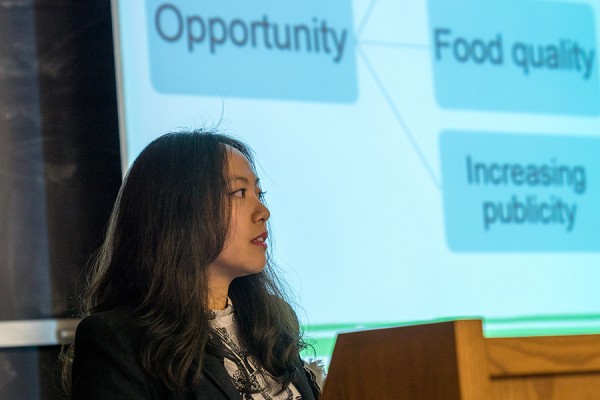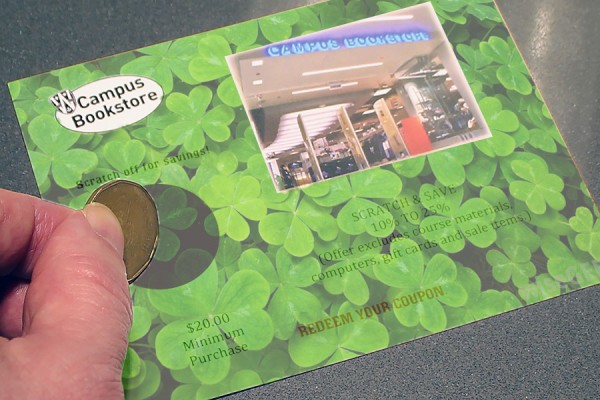 Dr. Chris Abeare, associate professor at the University of Windsor, is warning that invalid concussion baseline testing could see athletes returning to gameplay before they are fully recovered.
Dr. Chris Abeare, associate professor at the University of Windsor, is warning that invalid concussion baseline testing could see athletes returning to gameplay before they are fully recovered.
Many young athletes who have suffered a concussion may be at risk of returning to play too early because of invalid baseline testing, warns a University of Windsor professor.
Psychology associate professor Chris Abeare recently completed a study of 7,897 athletes between 10 and 21-years-old and found that 55.7 per cent failed at least one of four validity measures, suggesting that their baseline test scores are lower than their actual cognitive ability.
“This puts them in danger because their brain is likely not recovered fully,” said Dr. Abeare, who completed the study with Bradley Merker, Department of Behavioral Health at Henry Ford Health System in Detroit; Laszlo Erdodi, a faculty member in the psychology department; and clinical neuropsychology graduate students Isabelle Messa and Brandon Zuccato.
“Therefore, they are more susceptible to sustaining another injury which could have more prolonged symptoms.”
Baseline testing includes a number of neurocognitive measures administered to athletes in the pre-season. These test scores are meant to provide a reference point in the event of future injury.
If an athlete does not perform their best on the baseline test, either knowingly or unknowingly, that creates an invalid performance. If that athlete then suffers a concussion, the threshold for recovery is set much lower and they may return to play before they are fully recovered.
“It’s alarming. If over half of athletes are not giving their best performance then it really points to a significant problem in this whole endeavour of baseline testing,” Abeare said. “Baseline testing can be extremely useful, but we just need to be certain that it is.”
Because such a large sample size was examined, Abeare said he was able to break down the findings to see if invalid performance varied by age.
“It ended up being even more dramatic than we had suspected, with our youngest group of 10-year-olds having a base rate of failure of 83.6 per cent,” Abeare said.
“Our older athletes, at 21-years-old, had 29.2 per cent rate of failure. So, we found basically an inverse relationship between age and failure rate.”
This is especially important, Abeare said, because younger athletes suffer concussions more easily and take longer to recover.
“There are a variety of reasons, but their brains are not fully developed, and their neck muscles are not as developed to absorb the G-force as well as a full-grown adult,” he said. “They are more likely to have a prolonged recovery and that makes it even more critical we pay attention to their baseline scores.”
Abeare said there are a number of factors why younger athletes may have a higher rate of baseline failure.
“I’m speculating a bit, but younger athletes may not care to do the test, they may be more inattentive, and they find it boring,” he said.
Recently, a version of the test has been developed for children which utilizes one-on-one analysis with an iPad.
“The test will then be more interactive and engaging, but also changes the way it is currently administered,” Abeare said.
“These are group administered, so you can only imagine having 10 or 15 10-year-olds in a room.”
Moving forward, Abeare said the next step will be to compare the prevalence rates of invalid performance identified by the four measures in this study with those of other more well established performance validity measures.
“We have a bunch performance ability tests that have been well established and work,” he said. “So, the next steps are to look at performance validity in athletes and baseline testing using these other tests that have been well established.”
He said practitioners should also be mindful of the validity of baseline scores against which they are making comparisons to determine if an athlete has recovered from a concussion.
“We recommend using all four validity algorithms to give practitioners a better sense of the validity of the baseline test performance,” Abeare said.
“Failure on any one of them is a reason for some concern, but failure on two or more is certainly reason for concern.”
Dylan Kristy



